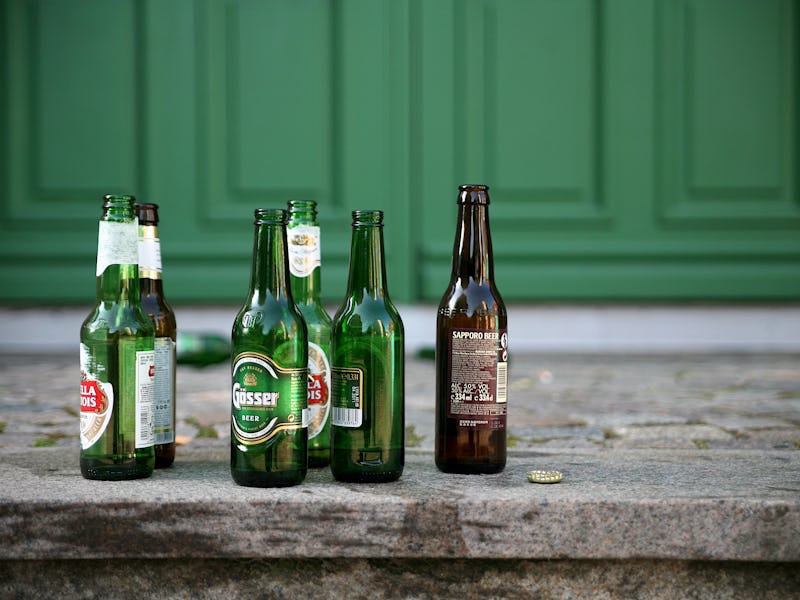Science Weighs in on Dry January, the Alcohol-Free Way to Start 2018
Is it worth the effort?

If you rang in 2018 with a hangover, you’ve likely considered Dry January, the month-long break from alcohol that more and more adults participate in each year. Dry January started as a public health campaign by Alcohol Concern, a U.K.-based charity, and a YouGov poll found that 3.1 million Brits plan to participate this year. But it’s spread beyond the U.K., too, as groggy, soft-middled Americans across the pond take notice.
The good news about Dry January is that its benefits can extend past January 31. A 2016 study on 857 British adults who participated in Dry January found that simply trying to drink less resulted in reductions in alcohol consumption six months later. Participating in Dry January also increased people’s perceived ability to refuse a drink in a social situation, a measure that researchers refer to as “drink refusal self-efficacy.” Not only did these people end up drinking less for months after Dry January; they also felt more confident in their ability to cut themselves off.
People who participate in Dry January may have an easier time moderating their drinking after January ends.
That being said, Dry January might not work the same for everybody.
“Multivariate analyses revealed that success during Dry January was best predicted by a lower frequency of drunkenness in the month prior to Dry January,” wrote the study’s authors. In other words, they found that people who drank less in December were more likely to be successful at Dry January than people who really blew it out during the holidays.
This fits with what we know about alcohol use disorder: The more you drink to excess, the harder it can be to slow down or stop. It’s also important to note that Dry January is not a substitute for medication-assisted detox. If you experience physical withdrawal symptoms when you stop drinking, you should definitely not try to quit cold-turkey. Alcohol dependency is one of the only types of physical drug dependency whose withdrawal symptoms can be fatal. If you get the shakes or have seizures when you stop drinking, or if you experience nausea or vomiting until you’ve had a drink, please don’t try to simply stop drinking this January and seek professional medical assistance.
Alcohol use isn't just about willpower. For many people, drinking is impossible to control through their own efforts.
But if you just want to be healthier and feel better, then by all means: Give Dry January a chance. Your body will thank you. Alcohol Concern claims that 62 percent of Dry January participants reported better sleep and higher energy level and that 49 percent of participants reported losing weight. Of course, this doesn’t account for confounding factors, like the fact that gym membership spikes in January.
Nevertheless, if Alcohol Concern’s statistics don’t give us a great idea of the typical Dry January experience peer-reviewed scientific research supports the benefits of reduced alcohol consumption. Inverse has previously reported that moderate alcohol use is associated with warning signs of dementia, and heavy drinking can lead to false beliefs about your own impairment.
So if you’re wondering whether you should drink less in the new year, why not give Dry January a try?